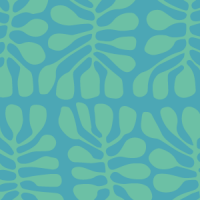I hope.
Jul 25, 2020
Story
Reading gave me a sense of hope. The writers, through their characters, spoke to me and held my hand.
When I was a teenager, our family could not pay the electric bill. The darkness did not stop me from reading a book. I placed a candle inside a glass and placed this on our old and dusty sofa. I was committed and engrossed to the story that I did not notice the candle as it melted, tilted, and burnt a dominant portion of our sofa.
Growing up, there was literal and metaphorical darkness in my life. Abandonment, poverty, and child abuse pervaded my childhood and haunted my adult life.
Because of faith, I have survived the darkness. My grandfather was a World War II veteran who spent the last days of his life as a minister in a small community. My mother looked up to her father-in-law. Her stories of my grandfather's faith gave me a sense of hope. This faith, of unconditional love and sacrifice, became my life's \"light at the end of the tunnel.\"
I have said countless prayers. I was convinced that there is a world beyond the many darkness in my life. But I also wanted to feel joy. Joy was elusive. There were instances when I found this sense of joy in another soul. At a young age, I was committed to the hope that we were destined for each other. The said person made the darkness less overpowering. His kindness I have mistaken for love. My heart broke to pieces once again.
I placed hope in my faith. But I felt alone and wanted someone to unpack the darkness with and experience hope shining on both of our faces. I unpacked my darkness on my own and hope shone on my face. I was still alone.
Years went by and I found hope in advocating for others. I realised that I could use my hands and my voice for those whose darkness are more harrowing than mine.
This gave me hope. Years later, this dissipated my energy. There were moments that the darkness hounding them reflected on my life. I needed someone to advocate for me, too.
To save myself, I found respite in little things. The sunset on my face, the scent of fresh leaves, the aroma of coffee, a beautiful quote from a second-hand book and a friend's smile – these gave me hope.
I moved around the country for development jobs and found myself in foreign zip codes for advocacies larger than my darkness. I felt affirmed and validated. I felt my heart was home for the first time.
Gradually, I became intently focused with acquiring validation. In the absence of validation, hope grew dimmer for me.
My idealism regained hope when I became a mother. My son became the embodiment of all my hopes and dreams. There are ordinary and extraordinary days brimming with hope. However, each time I was away from my son and the development space is wanting of inspiration and truth, I find myself losing a sense of self. I go home to my son each day and find the personification of hope.
To be the hope is a burden to much to bear for my son. I need to find ways to regenerate hope for short-term and long-term.
I spent my years pinning hopes on my faith, a soulmate, advocacies, and my son.
Hope has always been inside of me. Hope is my collective narratives reminding me that “this too, shall pass.” Hope is my will to pray to a divine power and wait for answers which may never come. Hope is my decision to love myself even when I am not loved the way I hope to be loved. Hope is the firm resolve to be my own bestfriend. Hope is the choice to keep writing even when this essay resonates to myself alone.
Hope is my seven-year-old self telling me, “we’ve got this.”




